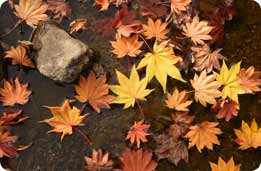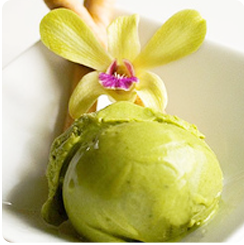
Health FAQs
Answers to frequently asked questions about Koyu Matcha.
- How much can I consume in a day?
- If you are following a healthy diet and are generally healthy and energetic, once a day should be enough from a health maintenance perspective. If you are using matcha for energy boosting or craving-killing, twice a day may be beneficial in certain cases, though you will need to judge your body’s own reaction. Some of our customers report a full day’s effects from one cup in the morning. If you wish to go on a detox, weight loss regime, or are lacking in energy twice a day is recommended. However you can vary the amount of matcha you use – we generally recommend 1g or a 1/2 tsp per serving – you can make that a little more powerful and use a level teaspoon per serving. Three times a day is only recommended if you are severely run down or battling a serious illness such as cancer.
- When is the best time of day to consume matcha?
- Any time you need an energy boost or increased focus. Morning time is very beneficial, and is a good time to take matcha as a smoothie. After lunch is a lso good for avoiding the mid-afternoon slump. Some of our customers refer to the “magic green powder” that keeps them perfectly alert and awake all through an enjoyable night out. Some people may want to avoid drinking matcha too late in the evening if they normally avoid coffee and tea before going to bed.
- Should I drink matcha before or after meals?
- Because matcha is such an effective blood-sugar regulator, you will not feel hungry after drinking it. If you are on the skinny side, we would recommend drinking it after some food. Some people may also find matcha a little intense on an empty stomach. We recommend consuming a small sweet or snack beforehand to allay this.
- Is matcha good for the skin?
- Matcha is an excellent product for general skin quality and blemishes. Topically applied it is also excellent. Currently matcha-based body and bath scrubs are winning beauty indusrty awards and one cosmetics company even boasts matcha tea as part of its skin care range, because of the cleansing effects of consuming the tea. Our tea is just as good though, and much, much more affordable.
- Can I expect any unusual reactions the first time I drink matcha?
- Everyone’s physiological reactions are different and though most people drink matcha with no side effects, that health bomb can be a little bit of a shock to your system. It’s best not to drink it on an empty stomach. Some people who are extremely sensitive to caffeine can find matcha has a similar effect to coffee. Others who cannot drink coffee due to the jittery side effects have no problems drinking matcha. If you are finding 1/2 tsp overstimulating, reduce your intake to 1/3tsp or even a 1/4 tsp per serving.
- What is the healthiest way to prepare matcha?
- We always recommend adding a little lemon or lime juice to matcha as studies have shown that these help protect matcha during the digestive process allowing you to get more of the benefits from it. Any citric acid is helpful. If you don’t wish to adulterate the taste, simply taking a few vitamin c tablets will be as good due to the ascorbic acid content.
- How can matcha be a stimulant and relax me?
- Matcha has long been used by monks, warriors and martial artists because of these seemingly contradictory qualities. The time release of energy by the energy drivers, caffeine and theophylline is at a rate that your body can deal with naturally while the powerful amino acid effect of the L-theanine relaxes and focusses. See more on L-theanine in our Matcha Energy page.
- Does matcha have caffeine?
- Yes it does but caffeine in matcha is a completely different proposition to caffeine in say coffee. Caffeine in coffee impacts on the adrenal glands and causes spikes in adrenaline glucose and insulin levels, causing jitters, nervousness sleeplessness and hunger pangs. Caffeine in matcha forms bonds with numerous nutrients so that it enters the bloodstream in a time-release fashion, leading to a steady level energy over 3-6 hours, rather than a spike and crash within 1 hour. Furthermore, matcha’s unique make-up means that the caffeine leaves your adrenal glands untouched while regulating insulin and glucose levels making it ideal for diabetics, and combating hunger pangs.
- I want to quit coffee, is matcha an option for me?
- We would suggest that matcha is possibly the best option possible for coffee addicts. Matcha gives an energy release 4-6 times longer than coffee, while regulating blood sugar, so you will feel both energised and content. The L-theanine effect relaxes and calms the nervous system, rather than overstimulating it. Almost all our customers have noticed their coffee consumption collapsing or have banished coffee from their diet altogether with no withdrawal symptoms. We can’t stop you liking coffee’s taste, but we can virtually guarantee you will no longer need it to get you through your day.
- I have high blood pressure, will matcha affect me?
- Matcha is a natural blood thinner, with numerous studies showing that green tea consumption helps to relax the arterial walls and lowering blood pressure. So matcha is great for those wishing to lower their blood pressure naturally without resorting to medication. Conversely, those with low blood pressure may want to consult with their physician before trying matcha.
- How does matcha affect cholestorol levels?
- Studies have shown that green tea consumption helps lower cholestorol levels. This may be because it helps inhibit lipid absorption in the digestive tract.
- I am a diabetic, can I drink matcha?
- Yes you can, matcha moderates irregular blood sugar levels, be they high or low and a number of Japanese researchers have looked into this. We would strongly recommend this to anyone who may be in danger of developing diabetes.
- Who shouldn’t drink matcha?
- As matcha contains caffeine, it may be advisable for pregnant women to avoid matcha, especially in the first three months of pregnancy. Some studies suggest that 300mg of caffeine is the safe daily limit for pregnant women, others 200mg. A typical serving of matcha has 30mg of caffeine as opposed to the 100mg one can easily consume in coffee. Matcha already helps prevent clots and relieves blood pressure due to its blood-thinning effects, which is good news for most people, but means its to be avoided by those already on blood-thinning medication such as Warfarin (Coumadin).

